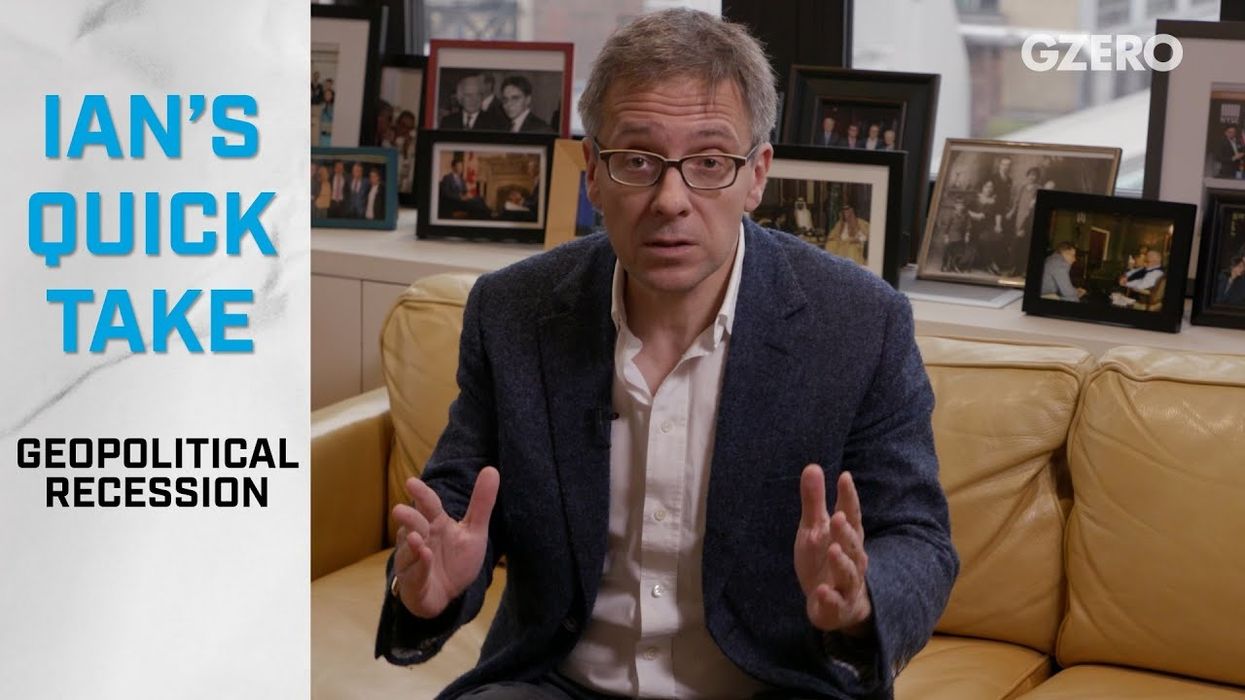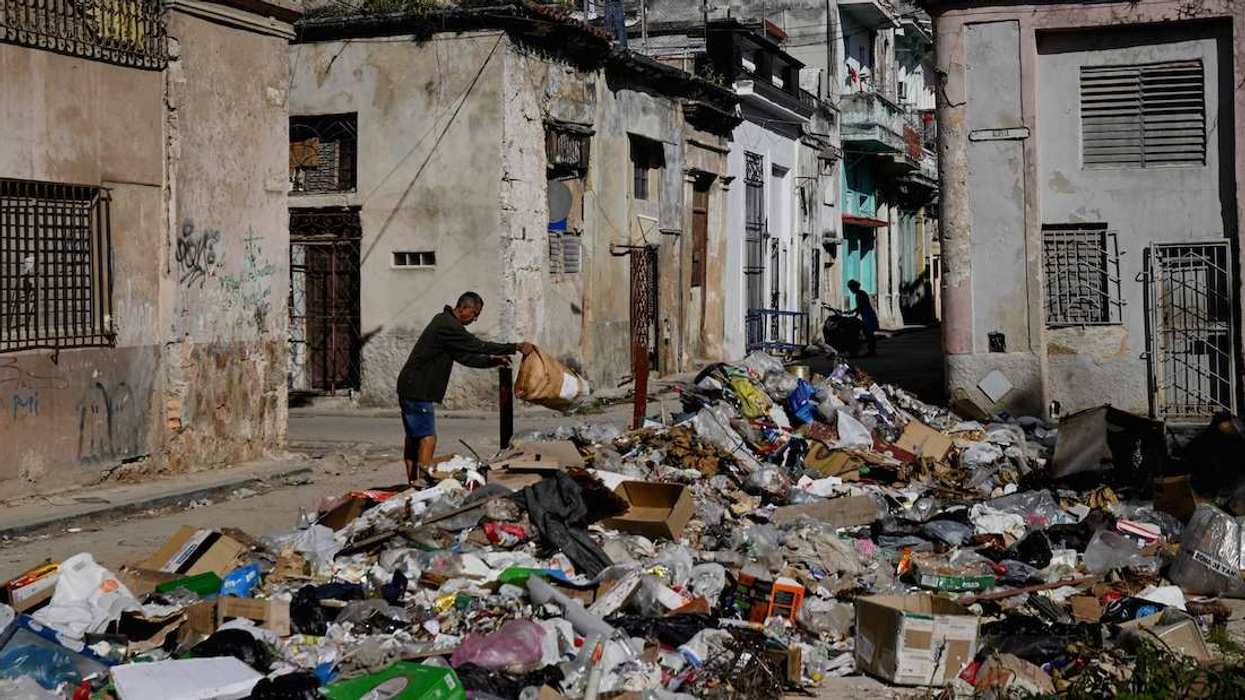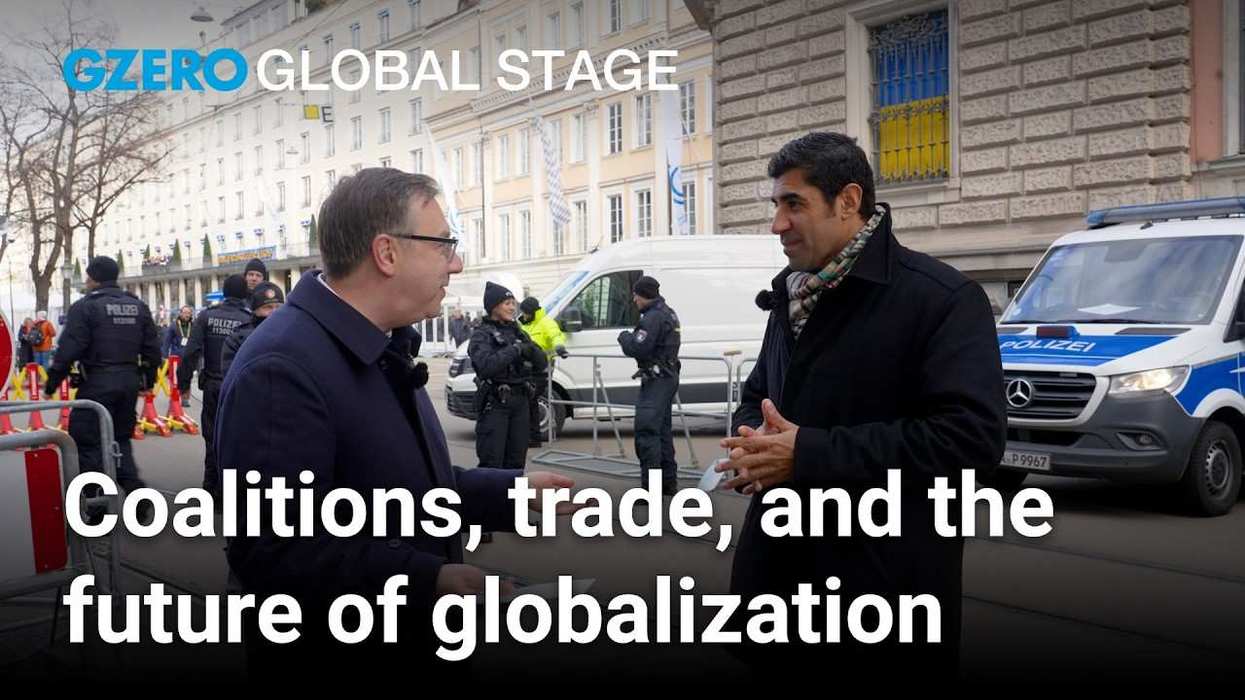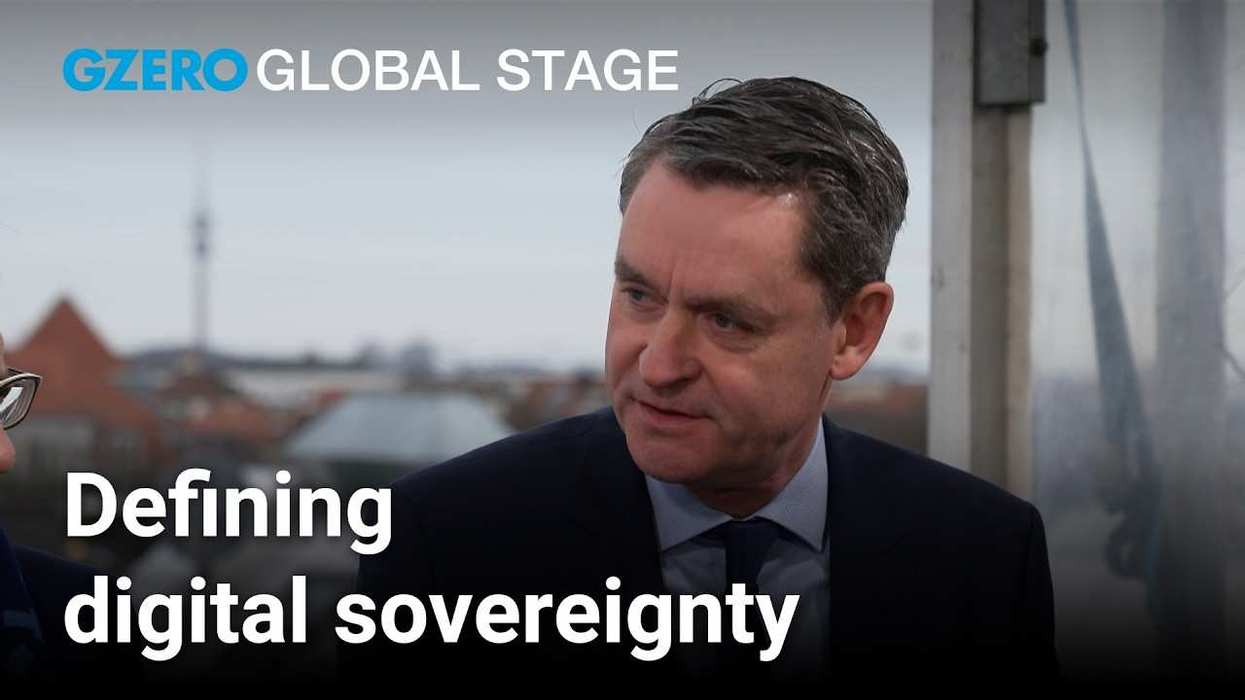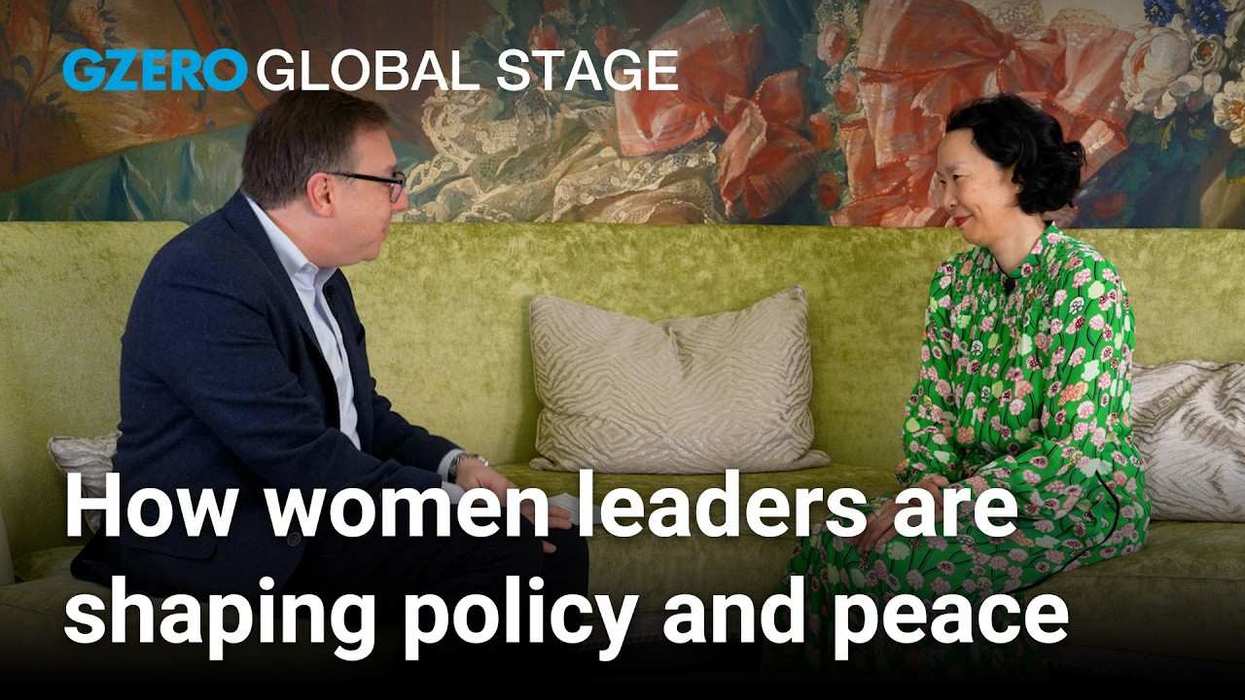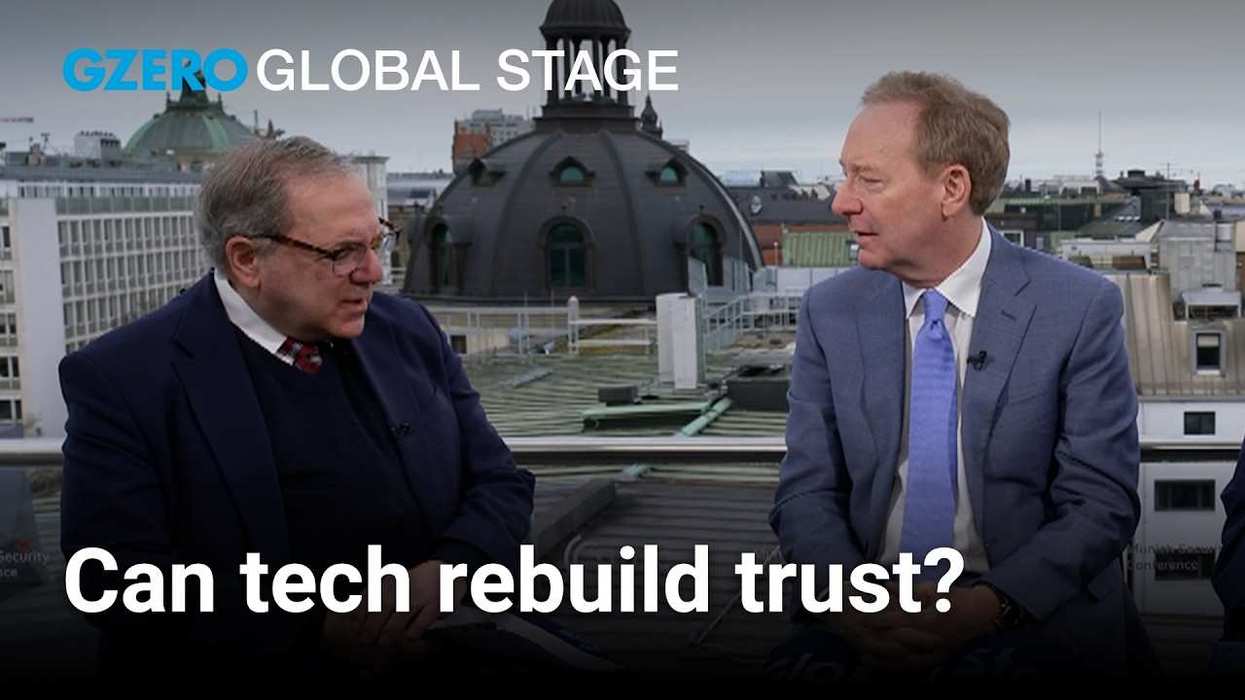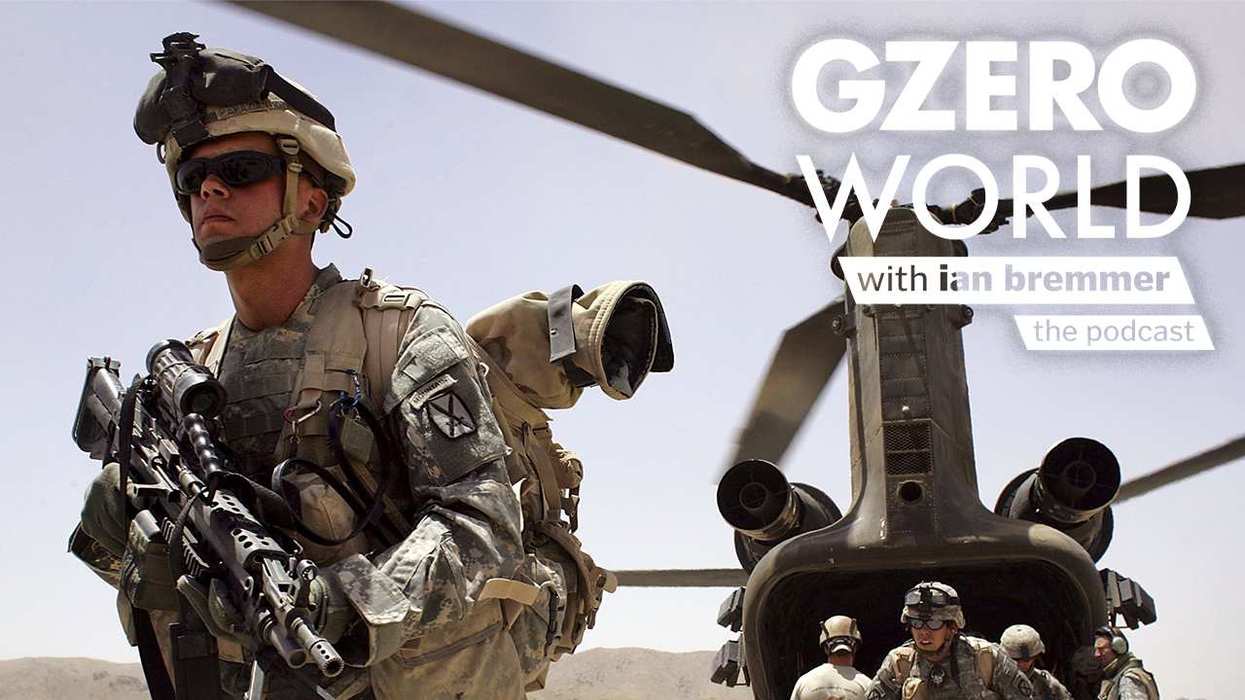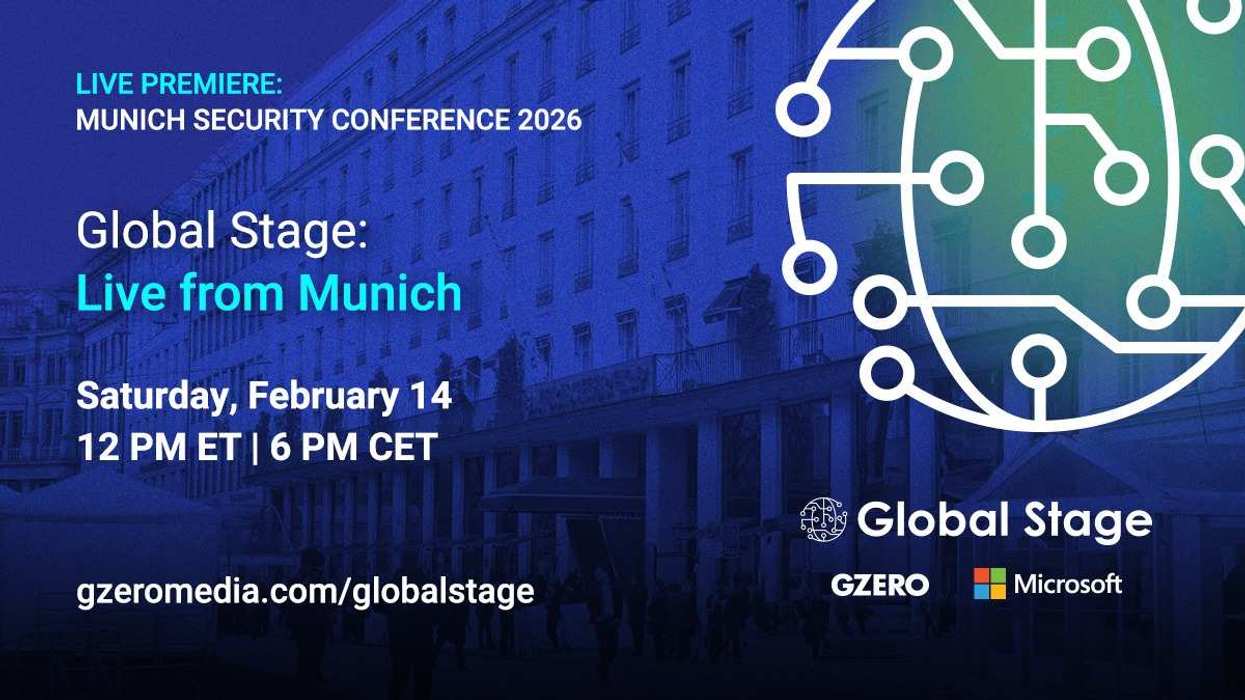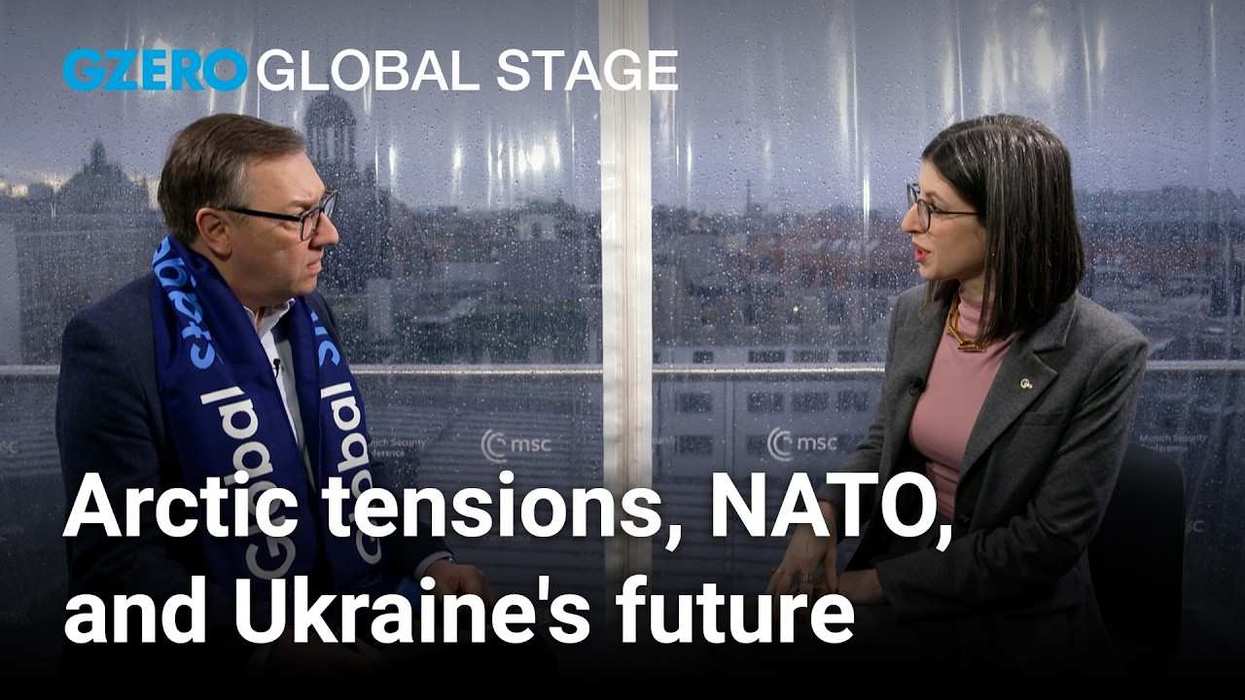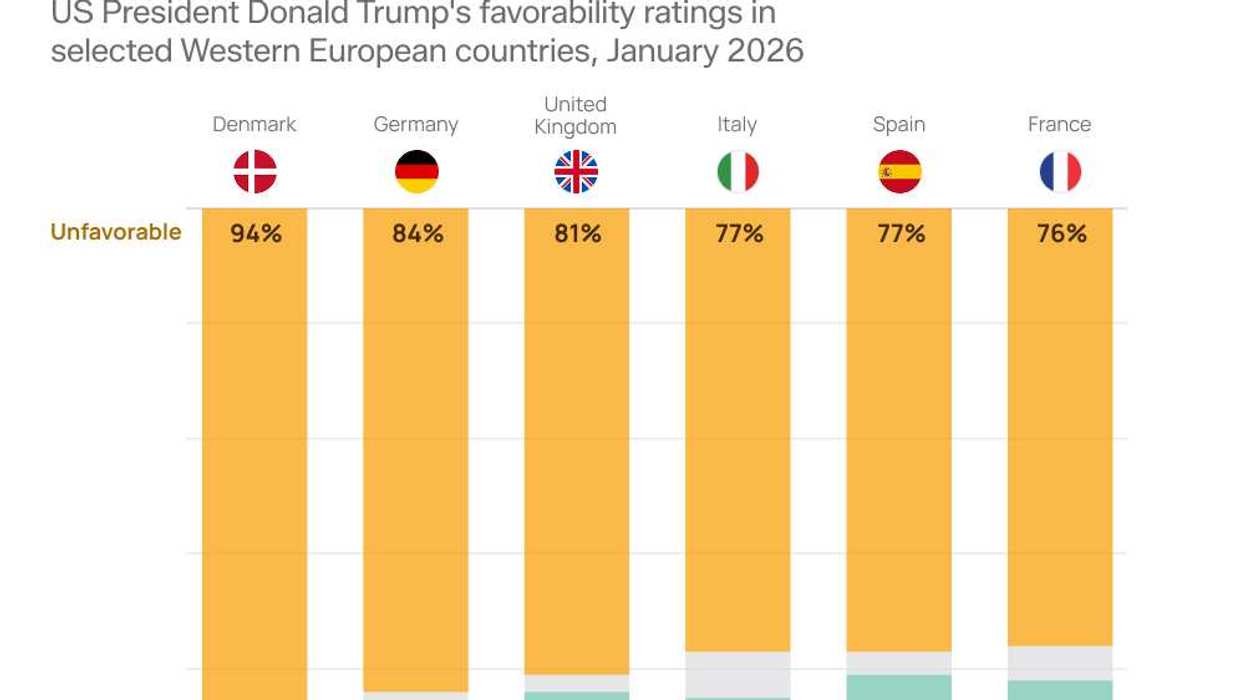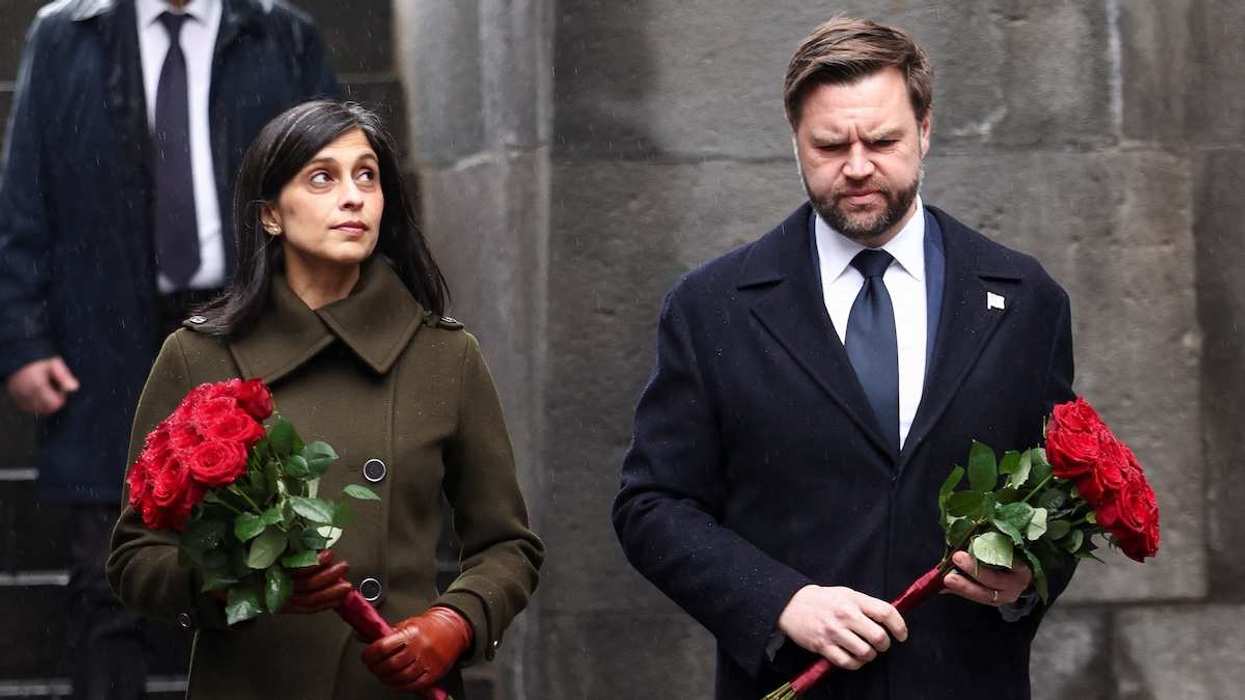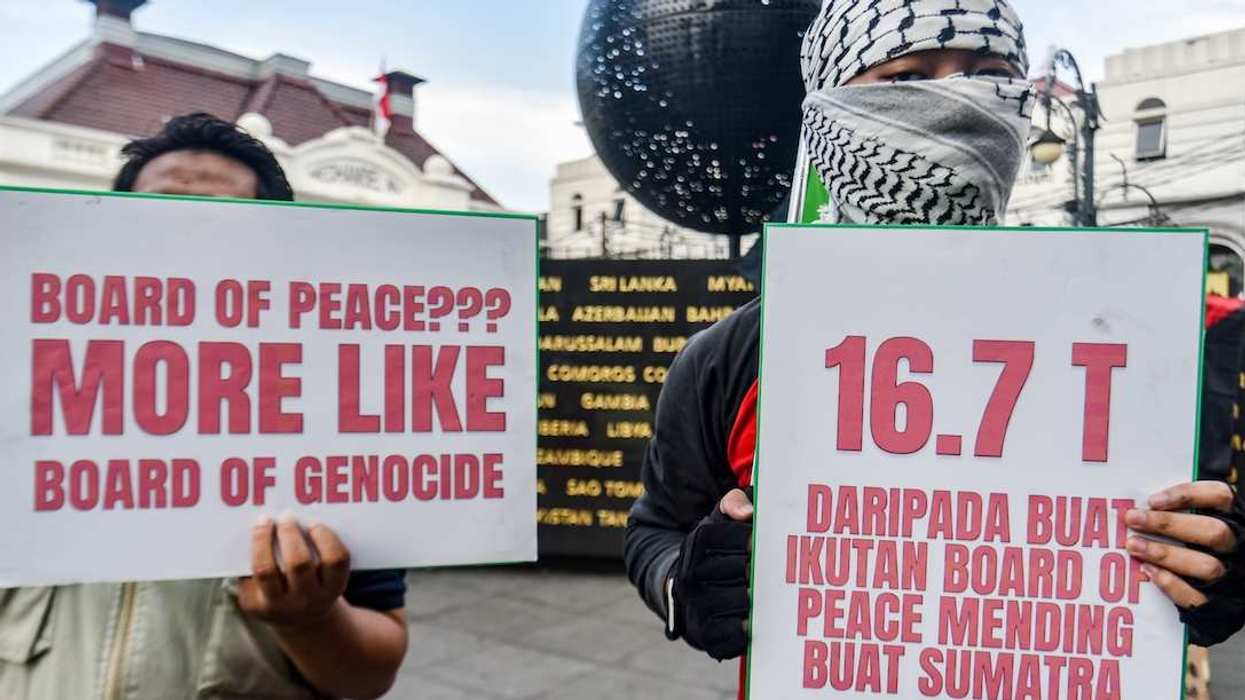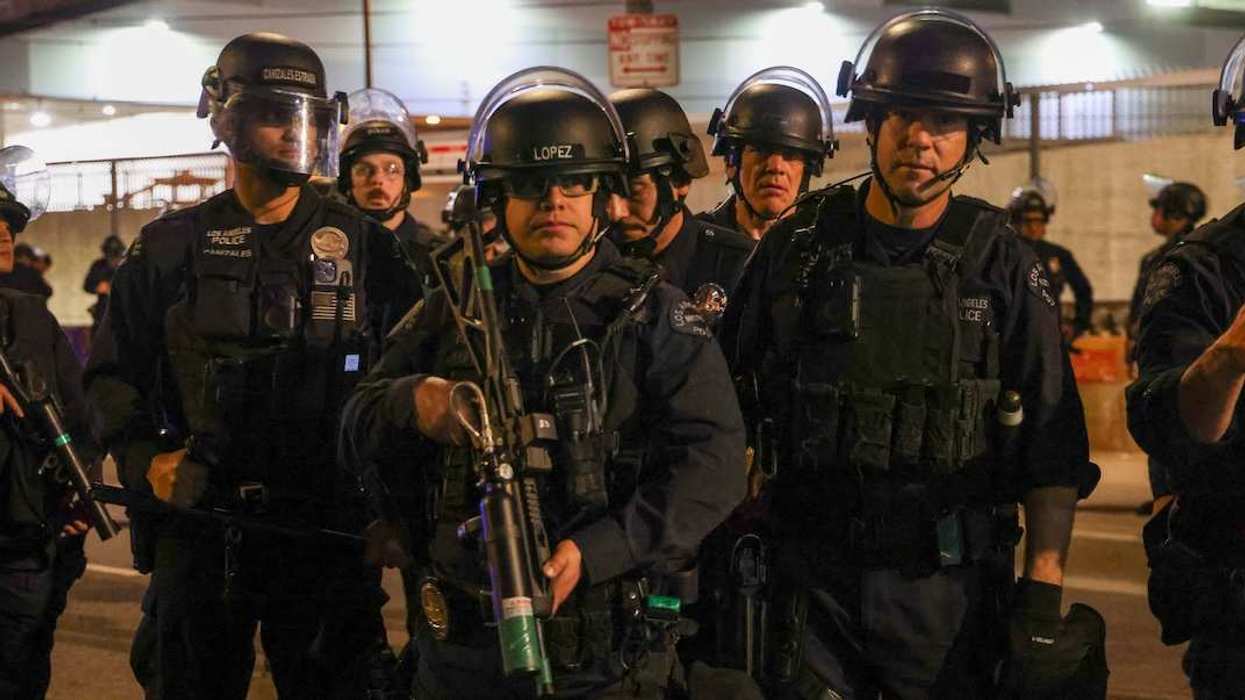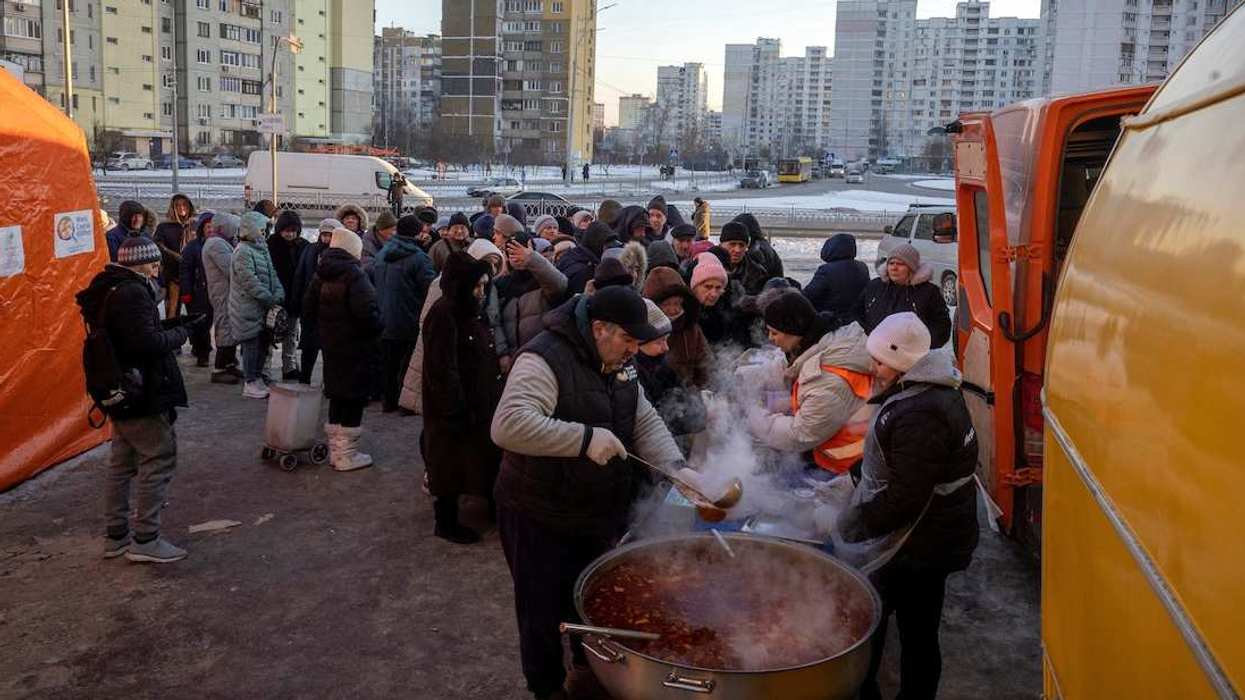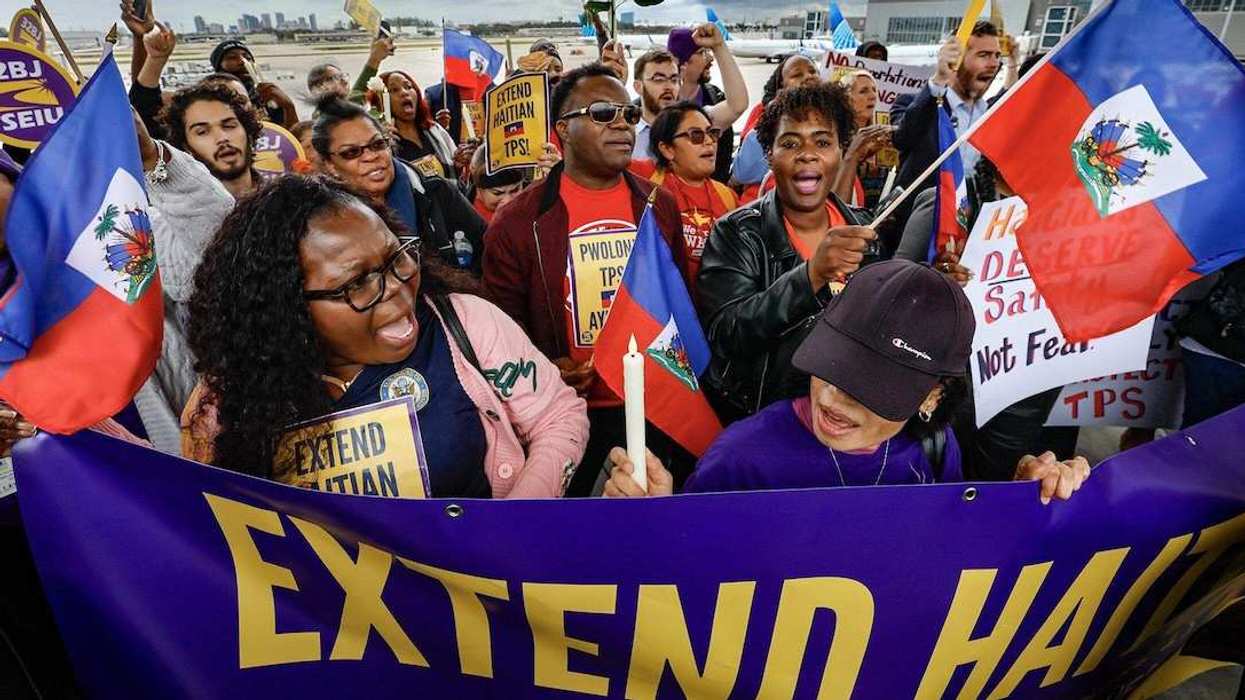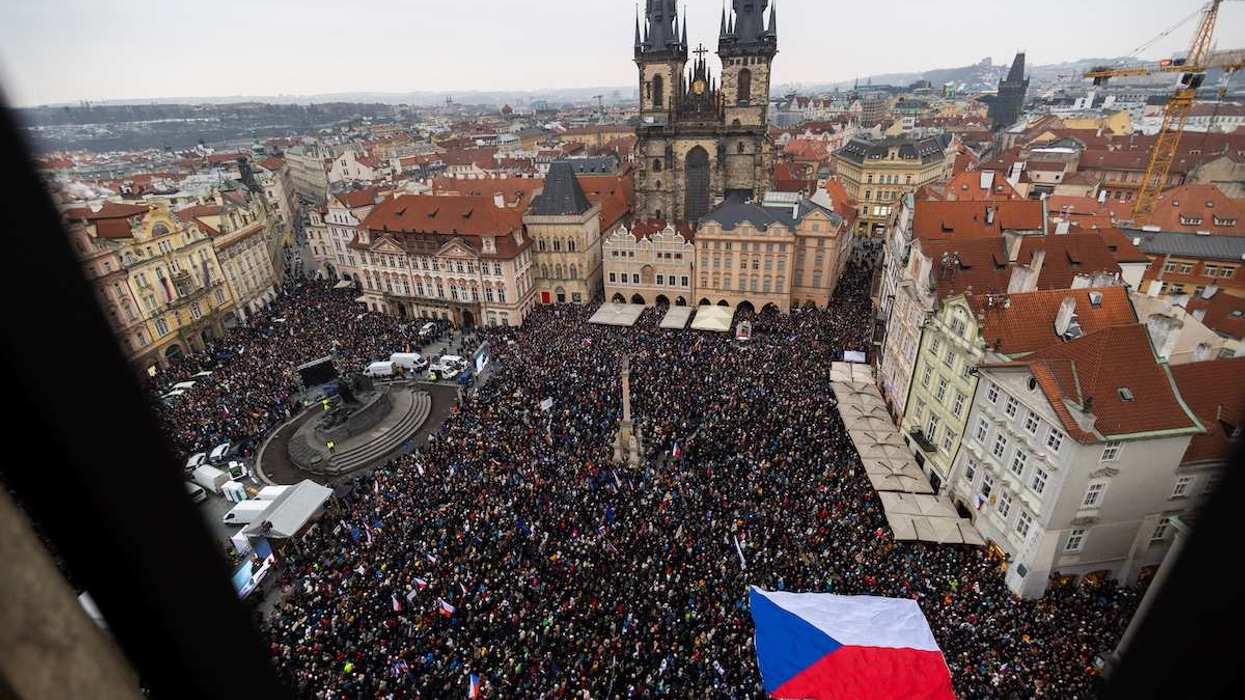VIDEOSGZERO World with Ian BremmerQuick TakePUPPET REGIMEIan ExplainsGZERO ReportsAsk IanGlobal Stage
Site Navigation
Search
Human content,
AI powered search.
Latest Stories
Sign up for GZERO Daily.
Get our latest updates and insights delivered to your inbox.
Global Stage: Live from Munich
WATCH RECORDING
Science & Tech
The geopolitics of science and technology: GZERO's news coverage and analysis of how scientific and tech developments impact the world's economy and society.
Presented by
Ian Bremmer, in the midst of a serious global crisis, explains what a geopolitical recession is - because we're in one. And it makes the ability to respond to coronavirus a lot more difficult than it normally would be.
We have economic recessions, boom and bust cycles, every seven years on average since World War II. We have tools to respond in terms of stimulus and fiscal expansion and monetary easing. And we even can identify and define a technical recession as when you have two consecutive quarters of negative growth.
Geopolitics have boom and bust cycles, too. We've been in a geopolitical boom cycle for a long time. We're now in a bust cycle. The end of the US led global order - a GZERO World, not a G7 or a G20. This geopolitical recession makes it a lot harder to respond to a crisis. The political institutions are less resilient. There are three different ways that that plays out, three different components of the geopolitical recession:
First is inside the United States, inside our democracies. We have a lot more feeling of illegitimacy, feeling that the system is rigged against the citizens. And therefore, less willingness to support leaders who need to lead. There's no willingness to work together. And it's not just in the United States. We see this playing out in Brazil today with President Bolsonaro and forces against him. We see it playing out in other countries across Europe with real challenges internally for those governments. So a geopolitical recession, first and foremost, weakening and de-legitimizing democracies around the world.
Secondly, a geopolitical recession in the alliances around the world and the ability of international politics to be run in a stable and consistent way. Not only do you have a lack of coordination in responding globally to a global crisis, but you also have global leaders actively blaming each other.
Then you have the institutional side, which is the institutions themselves are increasingly not aligned to the geopolitical order, so they can't respond very effectively. This is geopolitical recession, a bust cycle in the geopolitical order: the institutions are not aligned with the geopolitical balance. Because the alliances and the relations between countries are increasingly focusing not on coordination, but instead on what they need for their own national interests. Every nation for itself. And also, inside democracies around the world, both advanced industrial democracies and emerging market democracies, you increasingly have political polarization, blames-man-ship and a sense that the system and its establishment is rigged against the average citizen. If you have all three of those things, there should be no surprise that the ability to respond the coronavirus, effectively to the biggest global crisis we've had since 2008, and maybe larger than that, is going to be very, very severely lacking.
Keep reading...Show less
More from Science & Tech
Can we rebuild the Internet for democracy?
February 17, 2026
Two Americas on display in Munich
February 17, 2026
Froman: The world is "adjusting" to Trump's tariff power
February 17, 2026
GZERO World with Ian Bremmer
Feb 16, 2026
Ian Bremmer: The US–China AI space has “Zero Trust”
February 15, 2026
Why countries are picking their own alliances
February 15, 2026
What does “sovereign cloud” really mean?
February 15, 2026
The power of women leaders in global decision-making & peacebuilding
February 14, 2026
NATO’s new normal: “We may not be at war, but we’re not at peace”
February 14, 2026
Quick Take
Feb 14, 2026
Can tech rebuild trust?
February 14, 2026
President Trump's power-first foreign policy with CFR's President
February 14, 2026
Ian Explains
Feb 13, 2026
Hard Numbers: Valentine’s Day Edition
February 13, 2026
US-Iran talks: Are strikes inevitable?
February 13, 2026
You vs. the News: A Weekly News Quiz - February 13, 2026
February 13, 2026
Are we in an era of "wrecking ball politics?"
February 12, 2026
Munich Security Conference: Can Europe defend itself without the US?
February 12, 2026
Graphic Truth: Where risk is heating up the fastest
February 12, 2026
Graphic Truth: Europe isn't loving Trump
February 12, 2026
US government to fund MAGA-aligned groups in Europe
February 12, 2026
Puppet Regime
Feb 12, 2026
Cyber resilience for small enterprises
February 12, 2026
Sanae Takaichi has the power to change Japan
February 11, 2026
Post-Gen Z revolution, where does Bangladesh go next?
February 11, 2026
What’s Good Wednesdays™, February 11, 2026
February 11, 2026
Football wins, local economy scores
February 11, 2026
Walmart’s $1 billion investment is strengthening associate careers
February 11, 2026
Building community-first AI infrastructure
February 10, 2026
Venezuela’s window is open – but only a little
February 10, 2026
ask ian
Feb 10, 2026
Trump says Modi says he won't buy more oil from Russia
February 10, 2026
Freedom of expression at the Olympics
February 09, 2026
Bad Bunny makes it to the Oval Office
February 09, 2026
US troops arrive in Nigeria
February 09, 2026
Trump announces new Olympic games
February 09, 2026
Inside Mastercard’s vision for smarter, connected mobility
February 09, 2026
Is the tide turning on Russia’s sports exile?
February 06, 2026
You vs. the News: A Weekly News Quiz - February 6, 2026
February 06, 2026
Graphic Truth: India's imports of Russian oil
February 05, 2026
The American experiment in Liberia
February 05, 2026
The Debrief
Feb 05, 2026
Renters catch a break
February 04, 2026
Is Trump about to strike Iran (again)?
February 04, 2026
Walmart’s commitment to US-made products
February 04, 2026
What’s Good Wednesdays™, February 4, 2026
February 04, 2026
Is China’s currency coming for the US dollar?
February 04, 2026
Haiti is on borrowed time
February 03, 2026
Building community-first AI infrastructure
February 03, 2026
Epstein and America’s two-tier justice system
February 03, 2026
Why Singapore sees AI as an opportunity, not a threat
February 03, 2026
Trump’s next move in Iran
February 02, 2026
The politics of population
February 02, 2026
How Singapore navigates a fragmented world
February 02, 2026
Singapore's global moment, with President Tharman Shanmugaratnam
January 31, 2026
Singapore thrived on globalization. Now what?
January 30, 2026
Graphic Truth: Costa Rica’s severe murder rate
January 30, 2026
Costa Rica’s crime-time election
January 30, 2026
You vs. the News: A Weekly News Quiz - January 30, 2026
January 30, 2026
Why the EU-India trade deal matters
January 29, 2026
What to know about China’s military purges
January 28, 2026
Five forces that shaped 2025
January 28, 2026
GZERO Series
GZERO Daily: our free newsletter about global politics
Keep up with what’s going on around the world - and why it matters.
